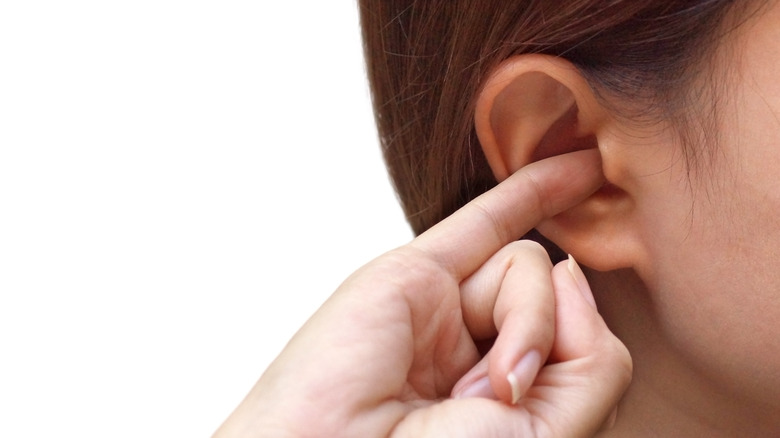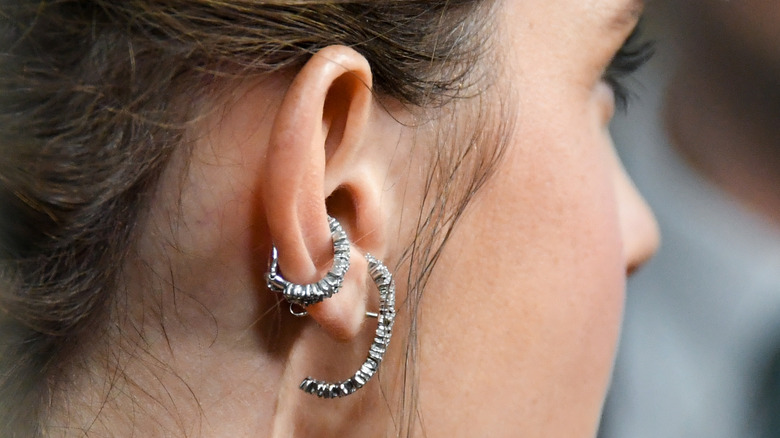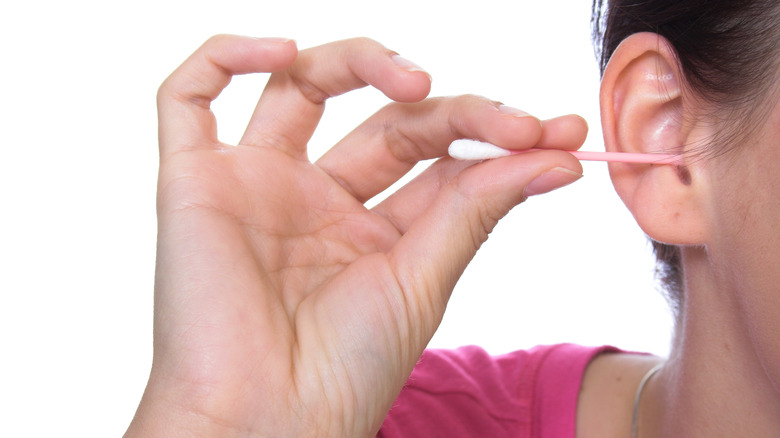This Is What Happens When You Don't Clean Your Ears Every Day
We all have things we do on a daily basis to maintain our own standards of personal hygiene. Some things, like showering and brushing our teeth, are as critical to most of us as sleeping and eating.
Others have to be reminded to wash the area behind our ears. And the more persnickety of us may want to take the extra step of cleaning out ears with the help of a Q-tip. While the area behind our ears definitely needs a daily clean, ear doctors and manufacturers of the cotton swab would like to stress the importance of keeping all objects out of your ear canal at all times. Doctors have very good reasons for us to give some parts of our ears a deep clean, while avoiding others at all costs.
Remember to wash behind your ears
Cleaning behind our ears is something we don't do often enough. While it may not exactly be difficult to reach, its position makes it easy to ignore. What happens, then, if we simply forget about the backs of our ears?
Doing so may give rise to minor signs of irritation such as a type of eczema known as seborrheic dermatitis, piercing infections, yeast infections, as well as other infections, and if not dealt with, it can get nasty in a hurry.
More often than not, we may not even be aware of any problem until we catch a whiff of a smell from behind our ears. If the area doesn't hurt and just smells a bit funky, the best way to deal with it is to wash with warm soap and water. But if the area is swelling, painful, or has a discharge, a doctor might be needed to make sure nothing is amiss (via Medical News Today).
Definitely stay away from the inside of your ear
Just as we need to be vigilant about making sure the backs of our ears stay clean, we need to be equally careful about keeping away from the area inside our ears. "There's no need to clean your ears with a cotton bud," says Dr. Rob Hicks (via Smithsonian Magazine). "The ear has its own internal cleaning mechanism. Fats and oils in the ear canal trap any particles and transport them out of the ear as wax. This falls out of the ear without us noticing."
The Mayo Clinic warns that digging at your ears with the Q-tip only pushes wax, as well as whatever might be bugging us deeper into our ear canals, making it even more likely for eardrum damage to occur.
If, after a shower, you find that water has made its way into an outer section of your ear, you can take your towel and dab at the excess water as you might do with the rest of your body. And if you find that there is a problem involving your hearing that refuses to go away, your best bet is to go see a doctor.


